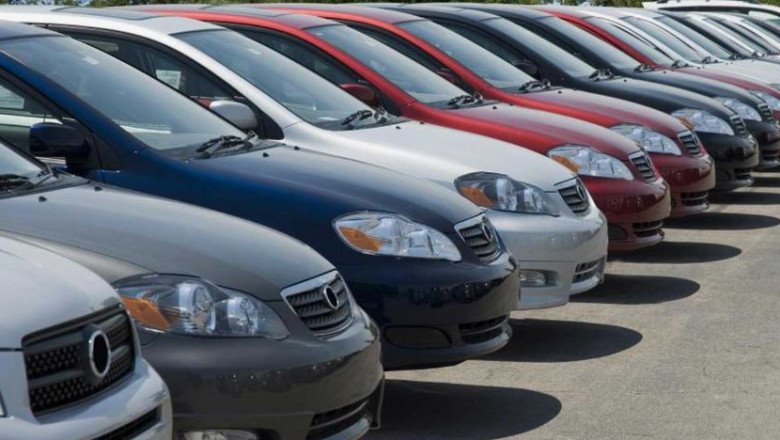views
In today’s fast-paced and budget-conscious world, used cars are often the go-to choice for many consumers. But have you ever looked at a run-down, older vehicle and thought, “Why is that beater so expensive?” The answer lies not just in economics, but also in the fascinating realm of psychology. Understanding the mindset behind used car pricing can shed light on market behavior, consumer decisions, and seller strategies. Whether you're a buyer or seller, understanding this psychology can help you make smarter moves — especially when considering services like cash for scrap cars removal Adelaide.
The Scarcity Principle: Fewer Cars, Higher Prices
One of the most powerful psychological forces affecting used car prices is scarcity. When supply is low — as seen during the global microchip shortage and post-pandemic economic rebound — demand naturally pushes prices up. But it’s not just economics at play. Psychologically, people assign more value to items they perceive as rare or harder to get. This applies just as much to an old Honda Civic as it does to luxury collectibles.
Consumers subconsciously fear missing out, and this FOMO (fear of missing out) drives them to pay more, even for vehicles with high mileage or visible wear. As choices dwindle, that "beater" starts looking more like a reliable, cost-effective treasure.
Emotional Attachment: Nostalgia and Personal Experience
Believe it or not, emotions significantly influence used car pricing. Sellers often place a higher price tag on their vehicles due to emotional attachment. A car might remind them of their youth, a road trip, or a special family event. This emotional value doesn't translate into physical or resale value, but it does affect pricing behavior.
On the flip side, buyers also bring emotion into the equation. Some seek out older models for nostalgic reasons. Classic cars or even discontinued models can evoke warm feelings and a sense of individuality. These emotions justify a higher price, even when logic would say otherwise.
Perception of Value: More Than Just Looks
Psychologically, consumers are wired to equate price with value — the price-quality heuristic. When a used car is priced higher than expected, some buyers assume it must be in better condition or more reliable than a cheaper alternative. Even if that’s not true, this bias can influence the final decision.
Sellers know this. Many strategically price their cars slightly above market average to signal quality. When accompanied by good photos, clean interiors, and thorough descriptions, that beat-up car appears trustworthy and well-maintained.
The Role of Anchoring in Pricing Decisions
Anchoring is another psychological phenomenon that impacts used car prices. When people see a high initial price, they tend to base their judgment around that number, even if it’s not realistic. For example, if a seller lists a car at $8,000 and later drops it to $6,500, buyers feel like they’re getting a deal — even if the true value is closer to $5,000.
This strategy is common in used car markets, both in private sales and at dealerships. It’s why researching and understanding a vehicle’s actual market value is crucial before making an offer.
Market Trends and Psychological Triggers
Media coverage, social trends, and even celebrity influence can drive up prices for specific makes or models. Think of it like fashion — when a particular model becomes trendy or associated with a popular figure, demand spikes, and so do prices. The psychological urge to conform or belong pushes people to follow suit, raising the price of what would otherwise be an average used car.
During times of economic uncertainty, buyers may also lean toward older vehicles perceived as durable or “mechanic friendly.” These psychological shifts drive sellers to increase their asking prices — sometimes beyond what seems logical on paper.
The Influence of Location and Urgency
Geography plays a surprising role in used car pricing. For instance, cars in regions with fewer public transportation options — or in places where vehicle inspections are less strict — often fetch higher prices. Add urgency into the mix, and psychology does the rest.
A buyer in desperate need of a car due to a new job, relocation, or family emergency is more likely to pay top dollar. Sellers often sense this urgency and adjust prices accordingly. This is where practical solutions like scrap car removal in Adelaide can also provide a smart, time-saving alternative for those looking to sell fast in high-demand markets.
Trust and Reputation: Buying From the Right Source
The psychology of trust can't be underestimated in used car transactions. People are more willing to pay a premium when buying from a reputable dealership or a seller with excellent reviews. The peace of mind associated with transparency, warranties, and verified vehicle history reports adds perceived value.
Even in private sales, sellers who present themselves well — with detailed descriptions, clean documentation, and clear communication — often get away with higher prices. It’s all about creating confidence, which directly influences how much a buyer is willing to spend.
Final Thoughts: Rational Pricing in an Emotional Market
In theory, used car pricing should be a straightforward calculation of age, mileage, and condition. But in reality, it's a blend of market dynamics and human psychology. From scarcity and nostalgia to perceived value and urgency, countless emotional and cognitive factors drive the cost of even the most modest vehicles.
Understanding these psychological triggers can empower you as a buyer or seller. Whether you’re evaluating your own car’s worth or browsing listings online, keep in mind that the true price is often more about perception than performance. With this awareness, you can navigate the used car market more confidently — and perhaps even get a better deal in the process.














Comments
0 comment